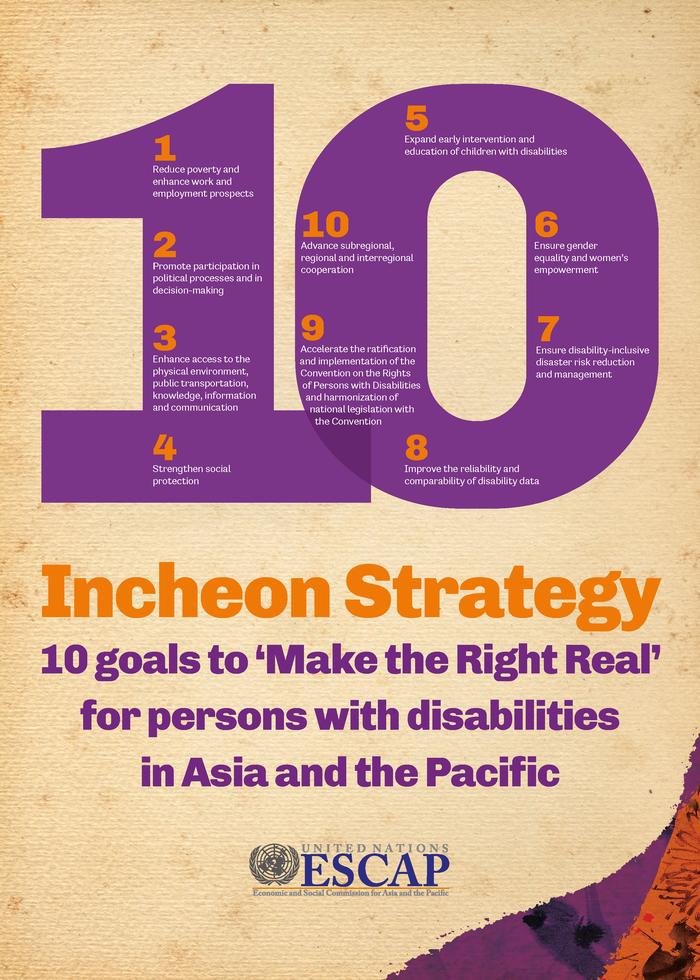Present Issues
- Lack of specialised agencies to train the disabled
- Lack of investment in research and development
- Not much steps for effective implementation of RPWD Act
- Low employment oppertunities
Convention on the Rights of Persons with Disabilities
An international human rights treaty of the United Nations to protect the rights and dignity of persons with disabilities. Parties to the Convention are required to promote, protect, and ensure the full enjoyment of human rights by persons with disabilities. First comprehensive human rights treaty of the 21st century and is the first human rights convention to be open for signature by regional integration organizations. Convention entered into force on 3 May 2008.
Asia and Pacific Decade for Persons with Disabilities, 2013-2022
Its a decade of action for the rights of persons with disabilities
Implemented in Asia – Pacific region
Incheon Strategey, 2012
The Incheon Strategy provides the Asian and Pacific region, and the world, with the first set of regionally agreed disability-inclusive development goals.
ESCAP secretariat is mandated to report every three years until the end of the Decade in 2022, on progress in the implementation of the Ministerial Declaration and the Incheon Strategy.
Incheon Strategy comprises 10 goals, 27 targets, and 62 indicators
It builds on the Convention on the Rights of Persons with Disabilities and the Biwako Millennium Framework for Action and Biwako Plus Five towards an Inclusive, Barrier-free and Rights-based Society for Persons with Disabilities in Asia and the Pacific.
Enables the region to improve the quality of life, and the fulfil the rights, of 650 million persons with disabilities.

Background on Asian and Pacific Decade of Persons with Disabilities
Governments of the Economic and Social Commission for Asia and the Pacific(UNESCAP) gathered in Incheon, Republic of Korea, from 29th October to 2nd November 2012 to course new Asian and Pacific Decade of Persons with Disabilities for the period 2013 to 2022. Meeting concluded second Asian and Pacific Decade of Disabled Persons, 2003–2012, and launched the new Decade. Governments at the High-level Intergovernmental Meeting adopted the Ministerial Declaration on the Asian and Pacific Decade of Persons with Disabilities, 2013–2022, and the Incheon Strategy to “Make the Right Real” for Persons with Disabilities in Asia and the Pacific.
What is Biwako Millennium Framework for Action?
UNESCAP at its fifty-eighth session, adopted resolution 58/4 of 22 May 2002 on promoting an inclusive, barrier-free and rights-based society for people with disabilities in the Asian and Pacific region in the twenty-first century, by which it proclaimed the extension of the Asian and Pacific Decade of Disabled Persons, 1993-2002, for another decade, 2003-2012.
UNESCAP document that sets out a draft regional framework for action that provides regional policy recommendations for action by governments in the region to achieve inclusive, barrier-free and rights-based society for disabled people. Regional framework incorporates the millennium development goals and targets relating for making disabled people an integral part of efforts to achieve the goal
